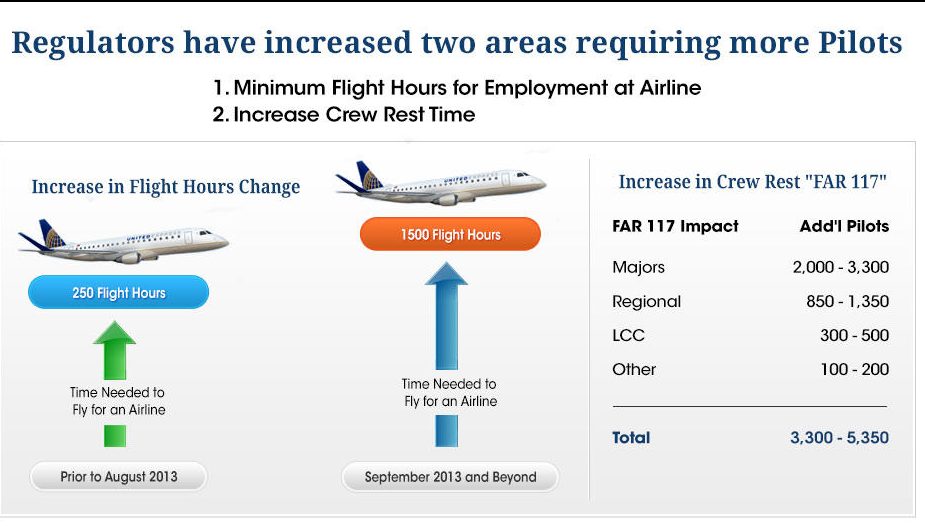The Role of Aircraft Management Companies in Buying and Selling Jets
Navigating the world of private aviation, more specifically, the buying and selling of jets can be intricately complex. This is where Aircraft Management Companies come into the saving picture. Possessing robust industry expertise, these companies streamline the whole process, transforming it from taxing & time-consuming to efficient & value-maximizing. In this comprehensive guide, we will delve deep into the role these companies play, from providing a thorough market analysis while buying, managing regulatory compliance & safety, to effective marketing during a sale. We’ll explore how the right Aircraft Management Company can reduce costs, optimize operations, and enhance your aviation investment. So, buckle up as we take you on a flight through the crucial aspects of aircraft management in the private aviation industry.
The Benefits of Using Aircraft Management Companies
The utilization of aircraft management companies in private aviation opens the door to a world of advantages. They can streamline the process of purchasing and selling private jets, injecting expertise and efficiency into each aspect of the procedure. Let’s delve into some of the key benefits you can expect when availing their services.
Cost Savings and Operational Efficiency
Primarily, an aircraft management company brings substantial cost savings to the table. Their broad industry knowledge allows them to find the best bids in the market, ensuring that you get maximum value for your investment. To further emphasize cost-efficiency, these management companies negotiate prices and discounts on your behalf, thanks to their sizable buying power and strategic relationships with suppliers.
Moreover, these entities provide operational efficiency. They oversee the routine maintenance and potential overhauls, take charge of crew scheduling and organize necessary inspections, amongst a myriad of other tasks. By handling all these responsibilities, aircraft management companies free up much-needed time for the owner, allowing them to focus solely on the enjoyable elements of jet ownership.
Regulatory Compliance and Safety Management
Adherence to regulatory compliance and ensuring safety is paramount in the aviation world. Aircraft management companies help private jet owners navigate the confusing maze of aviation regulations, ensuring that your aircraft complies with all legal requirements and is airworthy at all times. They also maintain impeccable safety standards, regularly conducting safety checks and risk assessments to guarantee a safe flight experience.
Access to Industry Expertise and Networks
Possibly one of the most sizeable benefits aircraft management companies offer is their extensive industry experience and connections. Their deep insights into market trends, jet models, aircraft pricing, and more, will prove invaluable during the buying or selling process. They also have established networks within the aviation industry, thereby connecting you to a range of potential buyers or sellers that you would not normally have access to. This access to their expertise and connections can save you a significant amount of time, money, and unnecessary frustration, hence the emphasis on choosing a company with a proven track record.
How Aircraft Management Companies Assist in Buying Jets
Purchasing a jet isn’t a transaction to be taken lightly. It’s a significant investment and one that requires a level of sophistication and industry knowledge. That’s where aircraft management companies come into the picture. Let’s delve deeper into the role that these organizations play in simplifying the process of acquiring an aircraft.
Market Analysis and Aircraft Selection
The acquisition of a jet starts with comprehensive market analysis and aircraft selection procedures. Aircraft management companies employ a team of industry experts who understand the intricacies of the aviation market. These professionals utilize their knowledge and experience to analyze the current market conditions and differentiate between the available aircraft models.
A thorough analysis typically involves comparing the performance, operational costs, and maintenance requirements of various aircraft models. It also includes forecasting future market trends and assessing their potential impact on the aircraft’s resale value. Apart from these technical aspects, the analysis also considers the unique needs of the buyer, such as their budget, travel requirements, and personal preferences.
Pre-purchase Inspections and Negotiations
Once the right aircraft has been identified, it’s vital to undergo rigorous pre-purchase inspections and negotiations. The role of aircraft management companies doesn’t stop at merely identifying the right jet. They also conduct meticulous pre-purchase inspections to ensure that the aircraft is in top-notch condition and that there are no hidden issues that might result in unexpected costs.
Moreover, the experienced negotiation team at these companies strives to secure the best deal for the buyers. They manage the negotiation process from start to finish, ensuring a fair purchase price and favourable contract terms. Their negotiation skills are backed by in-depth industry knowledge, enabling them to protect their client’s financial interests.
Financing and Insurance Arrangements
Finally, aircraft management companies streamline the financing and insurance arrangements. Buying a jet is a costly endeavour, and many buyers require financing to support their purchase. Aircraft management companies possess a wide network of financial institutions, which they leverage to help buyers secure the optimal financing terms.
Moreover, they also help buyers navigate the complex world of aircraft insurance. Ensuring that the aircraft is adequately insured is critical to protect the buyer’s investment and manage associated risks. From liability insurance to hull insurance, these companies have the expertise to ensure that the correct coverage is in place.
In summary, aircraft management companies play a crucial role in helping buyers make a well-informed and sound jet purchasing decision. By providing expert market analysis, conducting meticulous pre-purchase inspections, and securing the optimal financing and insurance arrangements, these companies ensure a seamless and efficient jet buying process.
The Role of Management Companies in Selling Aircraft
In the complex market of private aviation, selling an aircraft can be just as challenging as buying one. This is where the expertise of professional aircraft management companies comes into play. They provide a comprehensive set of services to facilitate the selling process, ensuring not only a profitable sale but also a smooth and hassle-free experience. Let’s delve into these roles in more detail.
Valuation and Market Positioning
The first step in selling an aircraft is determining its value. This is an intricate process involving the assessment of the aircraft’s condition, it’s maintenance history, hours flown, and other relevant factors. Experienced aircraft management companies employ in-house valuation experts and leverage advanced market data to conduct a robust appraisal.
With a precise valuation in hand, these companies then position the aircraft in the market. They identify the appropriate target market, devise a pricing strategy that maximizes return while ensuring competitiveness, and project the unique selling points of the aircraft to attract potential buyers.
Marketing and Buyer Outreach
Once the aircraft’s market position has been defined, the next step is to market the aircraft to prospective buyers. Aircraft management companies utilize their extensive networks within the aviation industry, including brokers, operators, and private collectors, to promote your aircraft. They may employ a blend of methods like direct outreach, digital marketing, and industry events participation.
The marketing process also involves preparing marketing collateral and speaking to the potential buyers. This can include high-quality images of the aircraft, detailed specifications, and in some cases, a promotional video to provide a virtual tour of the jet.
Transaction Management and Documentation
After finding a potential buyer, the management company manages the negotiation process, advising the seller on acceptable terms and conditions, and ensuring a fair deal.
Once a deal is agreed upon, the management company will handle the complex process of transaction management. They coordinate pre-purchase inspections, oversee the exchange of funds, assist in the transfer of titles and registrations, and compile the necessary legal documents.
Furthermore, they ensure regulatory compliance throughout the transaction process. This includes adherence to international trade laws, aviation regulations, and tax rules, minimizing risk and ensuring a clean transfer of ownership.
In conclusion, by taking care of valuation, marketing, and transaction management, aircraft management companies play a pivotal role in streamlining the entire aircraft selling process. They bring their broad industry networks, significant market knowledge, and meticulous attention to detail to bear, ensuring a smooth and successful aircraft sale.
Choosing the Right Aircraft Management Company
Choosing the right aircraft management company is a critical step in optimizing your private jet ownership experience. There are various considerations that must be weighed, including the company’s track record, fleet size, and the customize service offerings.
Evaluating Experience and Track Record
When selecting an aircraft management company, one of the key points to consider is the firm’s experience and track record. Companies with longstanding and positive reputations in the industry often have a wealth of knowledge in managing and maintaining private jets. An experienced provider will have developed efficient strategies for cost savings and will know how to navigate regulatory challenges. Checking customer reviews and conducting reference checks can provide invaluable insights into a company’s performance.
Experience isn’t just about length of service in the industry, though. It also refers to the nature of problems they’ve solved, the variety of aircraft types they’ve managed, and their ability to adapt to changing industry conditions and trends.
Assessing Fleet Size and Diversity
The size and diversity of an aircraft management company’s fleet are also important considerations. Companies with larger, diverse fleets are likely to have substantial operational and maintenance infrastructure. They also benefit from economies of scale, which can result in cost savings for jet owners.
A diverse fleet can also indicate that the company is capable of managing a range of aircraft types. This might be an important factor if you own, or are considering purchasing, a particular kind of aircraft.
Analyzing Service Offerings and Customization Options
Aircraft management companies offer a variety of services, from operational oversight and crew management to maintenance and regulatory compliance assistance. However, it’s the ability to customize these services to fit your individual needs that truly adds value and sets a management company apart.
For instance, you may prefer to handle some aspects of your jet’s operation personally while outsourcing others. An effective aircraft management company will adapt their offerings to suit this preference. Customization extends beyond just services. Some management companies also offer flexible billing strategies tailored to the usage and operational needs of your aircraft.
Choosing the right aircraft management company involves careful consideration and thorough research. By focusing on the company’s experience, fleet size, and ability to offer customized services, you can select a management partner that will truly optimize your private jet ownership experience.











